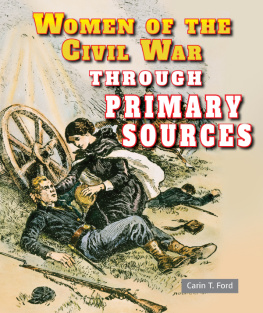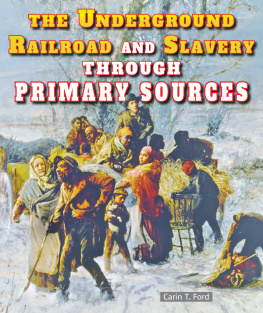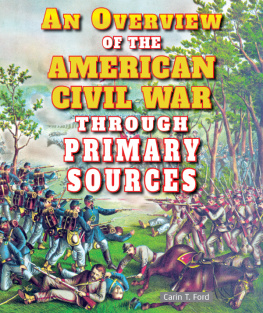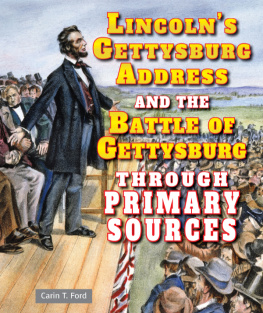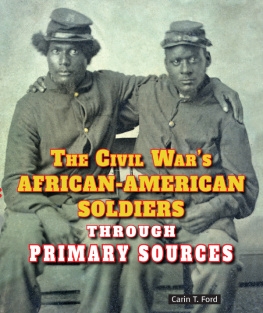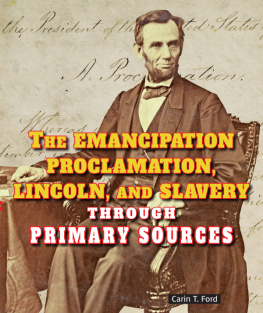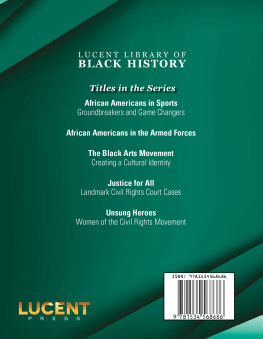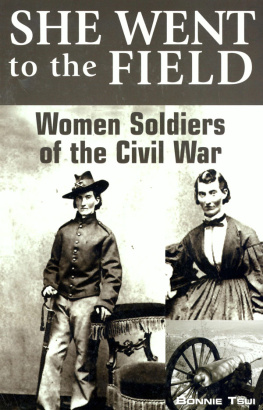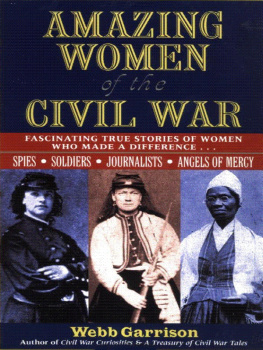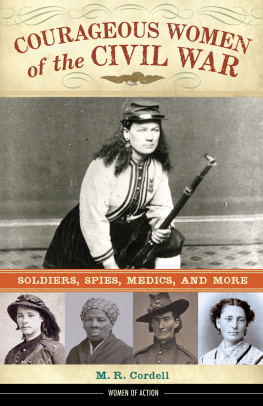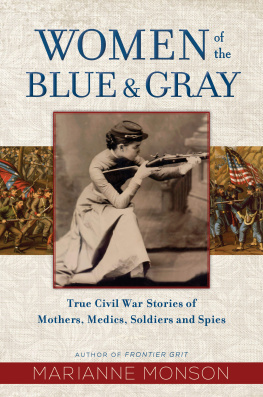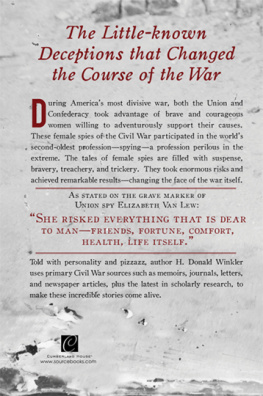The Heroines of the Civil War!
The Civil War was fought mostly by men, but the war could not have been won without the courageous effort of women. During the war, women served as spies and nurses. Some disguised themselves as men to become soldiers. With their husbands, fathers, and sons away at battle, women also had to hold down the home front. The task was hard, but it was necessary. In this stirring account, primary sources bring to life the remarkable stories of women of the Civil War.
About the Author
Carin T. Ford has been writing professionally for more than twenty-five years, including many books for Enslow Publishers, Inc. In addition to writing, she teaches English and journalism at colleges in the Philadelphia area.

Image Credit: Library of Congress Prints and Photographs
In this Civil War-era photograph, two unidentified women read letters from their loved ones. Many women, including Louisa May Alcott, wrote diaries and letters during the Civil War.
It was April 1861, and Louisa May Alcott wrote in her diary, I long to be a man.
The Civil War had just begun. Alcott was twenty-nine years old and wanted to be a soldier.
But Alcott could not join the army. She was a womanand womens work was in the house. Their jobs were cooking, cleaning, sewing, washing, and caring for children. Womens work did not include being a soldier.
There were many things that the laws of the United States did not allow women to do in the 1800s:
- They could not vote.
- They could not own property.
- They could not serve on juries.
- They could not be elected to political office.
When the Civil War broke out, men had to leave their homes and jobs to become soldiers. Women suddenly found themselves taking on new roles and more responsibilities than they ever had before.

Why was the United States being torn apart by war? The bad feelings between the North and South had started with slavery. Most Southerners were farmers, and their biggest crop was cotton. To produce millions of bales of cotton each year, the farmers needed plenty of field workers.
Their answer was African slavespeople who were kidnapped in Africa and brought to America in chains. Slaves did not have to be paid. They were property, bought and sold like animals. The owners forced their slaves to work.
Louisa May Alcott was born in Germantown, Pennsylvania. She began writing at an early age and had some poetry and short stories published in popular magazines. In 1854, she wrote her first book, Flower Fables.
As a nurse in the Civil War, Alcott came down with typhoid fever after only six weeks on the job. She was sent home. She based the book Hospital Sketches (published in 1863) on her time as a nurse.
When Alcott was in her mid-thirties, her publisher asked her to write a book for girls. The result was her most famous work, Little Women, a novel set in New England during the Civil War. Louisa went on to write more than thirty books.

Image Credit: Used by permission of Louisa May Alcotts Orchard House
Louisa May Alcott
People who wanted to abolishor endslavery were called abolitionists. They published newspapers against slavery and gave speeches about how badly slaves were treated. Many women were abolitionists.
The businesses, factories, and small farms in the North did not need slaves. Also, most Northerners believed it was wrong for one person to own another. One by one, the states in the North put an end to slavery. Yet some Northerners wanted to see slavery stopped in the South, too.
When women first joined the struggle against slavery, they used the only weapon they had: their words.
Angelina Grimk grew up in Charleston, South Carolina. Her family owned many slaves. As a teenager, Angelina saw a young slave whose master had whipped him so badly that the boy could hardly walk. Angelina knew this was not right.
When she was older, Grimk and her sister, Sarah, left their home and headed North. There, the two women wrote newspaper articles and gave speeches against slavery. However, most Northerners did not care about slaves in the South, and they thought speaking in public was not ladylike. Crowds often made fun of the sisters and threw apples at them.
One of the strongest voices against slavery was a runaway slave who called herself Sojourner Truth. She used her loud voice and sharp wit as weapons against slavery. Often, her audiences cried as she talked about the horrors that she and other slaves had suffered.

Image Credit: Library of Congress Prints and Photographs
After escaping slavery, Sojourner Truth, pictured here in 1864, toured parts of the country, speaking out against slavery.
The woman with the most powerful words of all was Harriet Beecher Stowe. In 1851, Stowe started writing Uncle Toms Cabin, about an old slave named Uncle Tom and his cruel master, Simon Legree. Reading this heartbreaking story made many Northerners more upset and angry about slavery than ever before.

Image Credit: Library of Congress Rare Books and Manuscripts Division
This is the title page to an 1852 edition of the Harriet Beecher Stowe novel Uncle Toms Cabin. Read widely throughout the North, this book sparked even greater outrage against slavery. But slavery supporters in the South despised the book.
* Secede means to break away. Eleven Southern states seceded from the United States.
* President Abraham Lincoln began fighting the Civil War because he did not want the nation split in two.
When Abraham Lincoln was elected president in 1860, many Southerners were afraid he would put an end to slavery. Seven Southern statesSouth Carolina, Alabama, Florida, Mississippi, Louisiana, Texas, and Georgiabroke away from the United States. They formed their own country, the Confederate States of America. Lincoln wanted to keep the country united, and fighting broke out between the North and South. Soon, Virginia, Arkansas, Tennessee, and North Carolina joined the Confederacy.
Few people thought the Civil War would last long. But as the fighting dragged on for four bloody years, it became clear that more help was needed, both at home and on the battlefield.
They are coming! The Yankees are coming at last! wrote Sarah Morgan Dawson in her diary on March 14, 1863. Union troops were pushing their way toward her home in Louisiana. For four or five hours the sound of their cannon has assailed our ears. There!that one shook my bed!
Like countless other women in the North and South, Dawson kept a diary during the Civil War. For some women, writing helped pass the time. For nearly all, it was a way to express worries, hopes, and fears.

